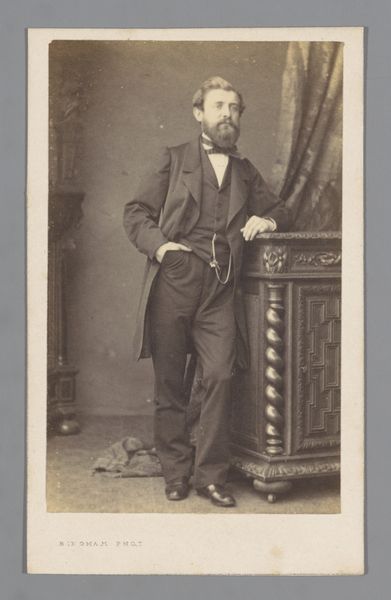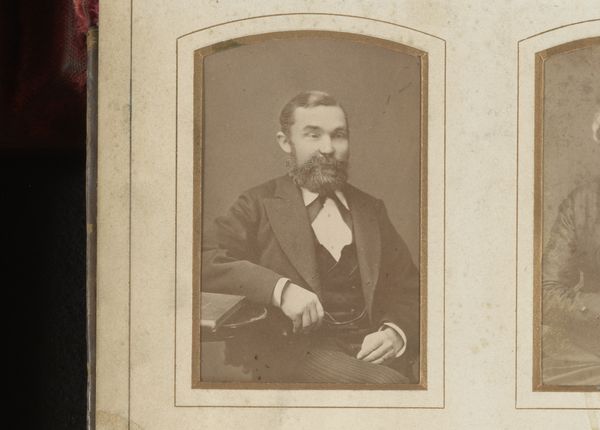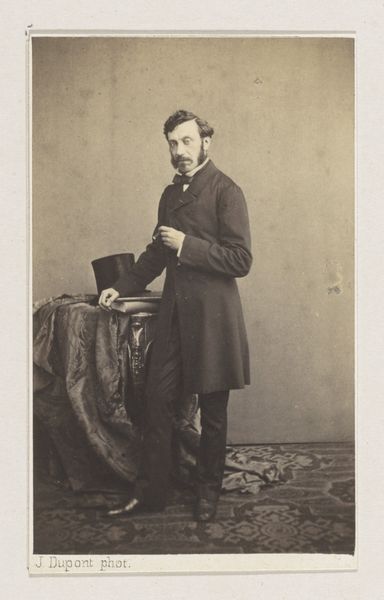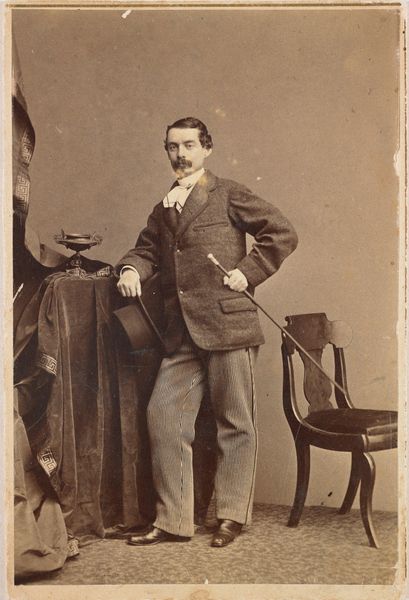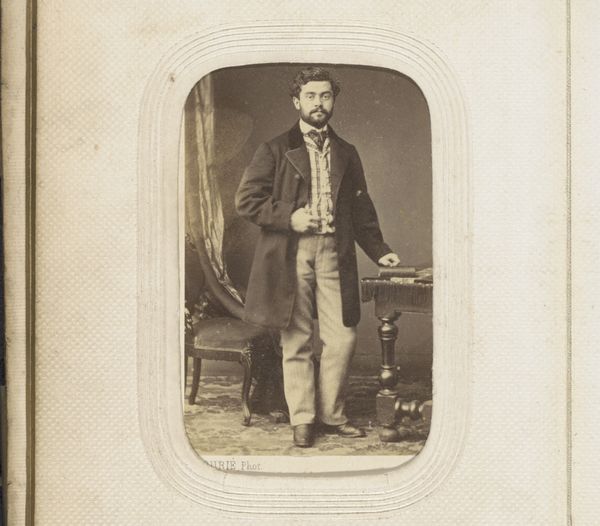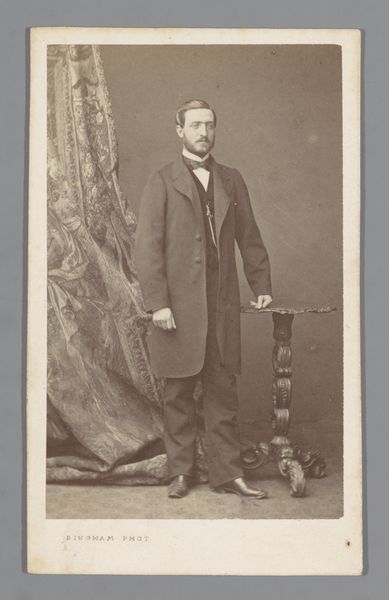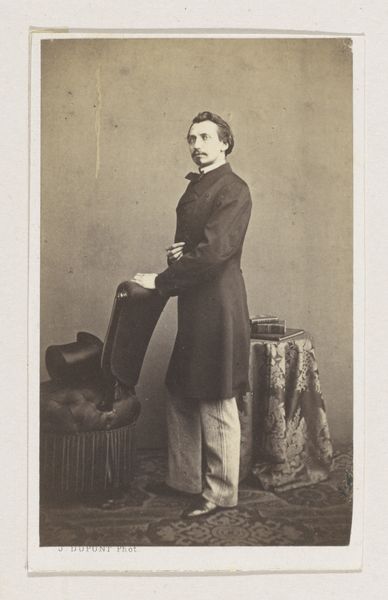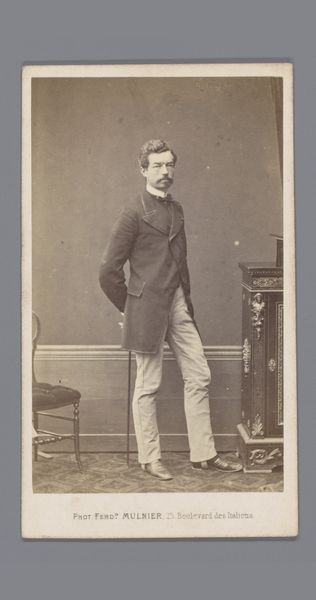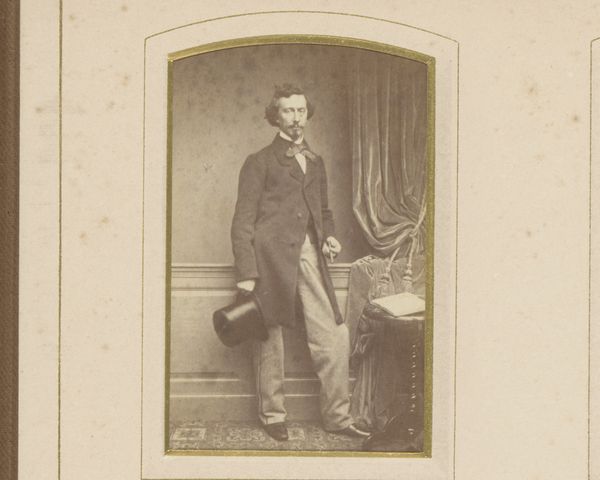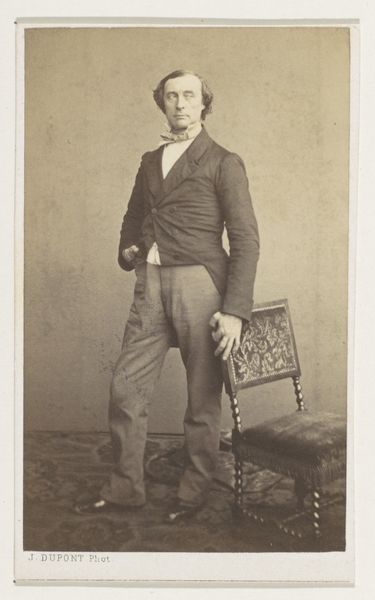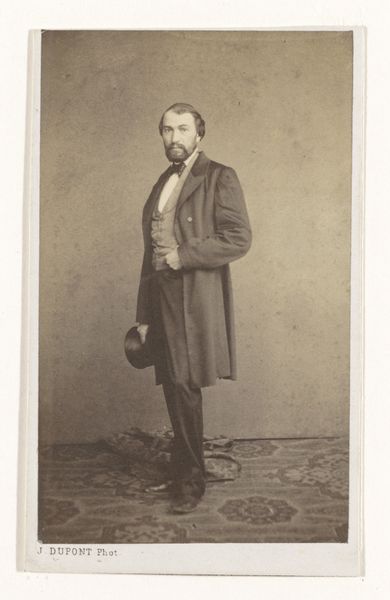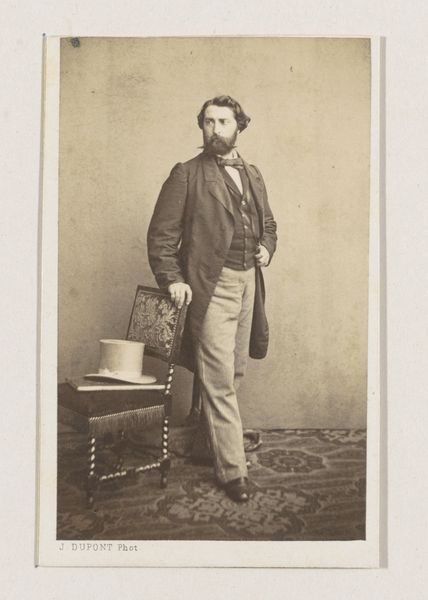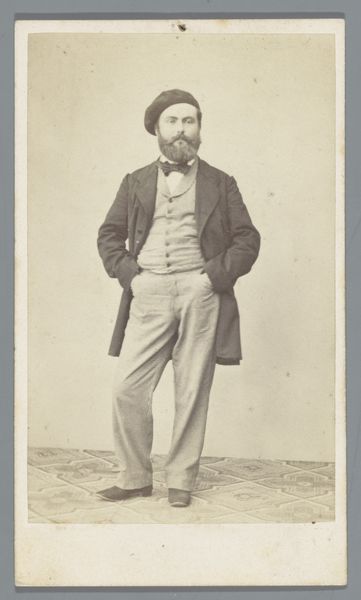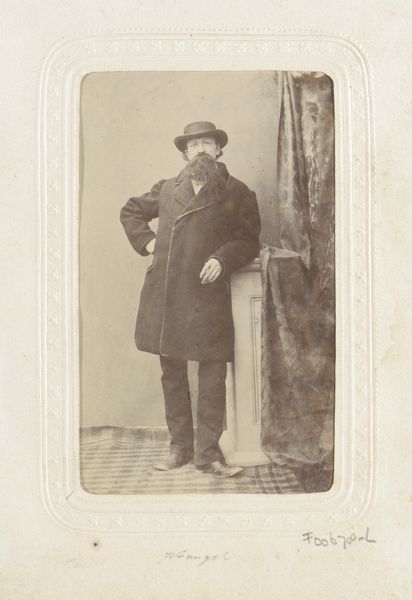
photography, gelatin-silver-print
#
portrait
#
photography
#
historical fashion
#
gelatin-silver-print
#
history-painting
#
realism
Dimensions: height 105 mm, width 62 mm
Copyright: Rijks Museum: Open Domain
Curator: A somewhat somber figure, wouldn’t you say? There’s a distinct stillness about him. Editor: Yes, though the sepia tones give it an old-world charm. This is a gelatin-silver print titled "Portret van een onbekende zittende man" which translates to "Portrait of an unknown sitting man" by François Joseph Delintraz, dated somewhere between 1858 and 1868. I'm fascinated by the actual photographic process used. Curator: Absolutely. Look at the detail Delintraz captured with this process, you can discern the texture of his clothes, the sheen on his shoes, even the individual hairs of his beard. The means of production give insight into the materiality that defines the piece. Editor: And notice the backdrop – it’s a painted scene, a pastoral landscape. Studio photography at this time was about creating an image of status, placing the sitter in a setting that elevated him. It's as much a curated social document as it is a portrait. The depicted historic clothing further reflects historical influence. Curator: It really speaks to the burgeoning middle class who suddenly had access to portraiture, which was formally reserved for the aristocracy. What previously needed oil paint can now be quickly reproduced through chemical and mechanical process, impacting who and how a subject is represented in visual form. Editor: Precisely! Consider also the social performance involved – the carefully chosen attire, the posed posture. Photography studios emerged as businesses catering to this desire for representation, and galleries soon featured them, therefore shifting tastes to the art public, affecting all parties. Curator: It's almost a standardized method. This work also blends "high art" through references in the painted backdrop of idyllic pastoral scenes while still focusing on a particular kind of labour. He certainly embodies the aesthetics and industrial production values of his time. Editor: He certainly does. Reflecting on the portrait as a whole, one can't ignore how he and Delintraz together produced a clear signal of the social forces and institutions during this era. Curator: Indeed. Studying the materials tells its own, perhaps just as compelling story, from social background to artistic expression. Editor: Definitely. A great image to study!
Comments
No comments
Be the first to comment and join the conversation on the ultimate creative platform.
